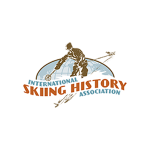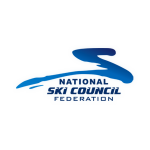 Editors Note:
Editors Note:
It is with great sadness that we learned of the recent passing of one of our very popular contributors, Bob Trueman, a retired ski instructor and coach based in Europe. Every one of his many articles about how to ski better and enjoy it more struck a chord with SeniorsSkiing readers, always eliciting a spirited conversation in the comments section. We are republishing one of his last ones, about the simple pleasures of just enjoying skiing without worrying about improving or not. Richard Lambert
Jean Claude Killy, one of the greatest ski racers of all time, reminded us that “skiing is always a trip to the edge of what is possible. But it is not an obligation – we don’t have to improve if we don’t want to; skiing should always be a pleasure.
It’s in our nature that only a small percentage really want to improve the quality of our skiing, and for those who do, that’s one of the ways we enhance our pleasure. For others it can more beer in the mountain restaurant. Both are valid.
What IS better quality skiing? Put at its most concise, it’s best described as “more skillful skiing”.
Skill is a much misused word. “Carving” a ski, or pitching a baseball are often referred to as “skills”. They aren’t; they are techniques, which can either be executed skillfully or not. Watch me pitch a baseball and you’ll know what I mean.
So the next questions in this cascade of questions are – what is skill, and how is skill improved?
The most concise definition of skill I know is this – “Skill is the learned ability to bring about pre-determined outcomes with maximum certainty; often minimum effort”. (Emphases added).
My job over the last 35 years or so has been to assist skiers to enhance their ability to do this. Not to “show” them what to do. Not to “demonstrate” perfect skiing (which I can’t do anyway). Skill cannot be enhanced by watching someone else, particularly if they are especially proficient – super skillful skiers do things so subtly that you can’t see what’s going on anyway.
Our personal make-up guides our beliefs, which give birth to our thoughts, which drive our actions – what we actually do – and what we do brings about our outcomes.
To achieve better skiing outcomes we need to change what we do. I’ll repeat that – it’s what you DO that matters.
“Doing” in skiing, involves a lot.
As a skier, you already know full well that we have to exercise control over every part of our bodies – our heads, torsos, arms, hips, legs, feet, even toes!
Because the only person who can improve your skiing is you, you are the one who needs information coming to you in real time letting you know how close to your desired outcome your performance is. Once, that is, you have defined your desired outcome of course – which is where fellows like me come in.
Since we have only a limited number of senses acting as pathways for this information, we must ask which is best. As a longtime instructor and coach, I can tell you that it’s what you feel , it’s not what you smell, taste, or hear though once already highly skilled, hearing may well be useful, but it’s not the number one.
Importantly, it’s not what you see, though that can help you avoid a tree. One reason for this (there are many) is that you cannot see yourself as you ski.
You need to develop a high level of skill is assessing what you feel. As a simple example of this – imagine you’re my pupil. We decide a specific desired outcome and what you’ll attempt to be aware of. You ski, I watch. At the end of your very short run I ask “What did you feel?” If you’re like 99% of skiers you will say something like “It felt good”. Or “Yeah, I felt ok”,or “I didn’t really feel confident”, or whatever.
At which point you will hear me say “I didn’t ask you that – I asked you what you felt (as you skied) I wasn’t asking you for a value judgement, just what you felt.
We are likely to have agreed that you would seek to feel, say, some pressure under a toe, or feel your shin pressing against your boot, or to feel if any pressure came under your heel, etc etc. Just one thing, never two.
I will tell you that I don’t want you to think or anticipate or even make anything up (you’re not being judged). All we are doing is working together to help develop your awareness. Very few skiers have it, and watching other skiers will not develop it.
You can do it on your own though when you know how. Until you know how, it provides a living for good ski coaches like me!
I wrote a paper somewhere in which I made up two new English words that help us here – the paper was called “The Kneed to Knowtice”. To enhance our skill at pretty much anything we need to be focused, and more importantly to notice a chosen specific that will enable us to know what is happening concurrent with its happening.
The simplest example is my most frequent exhortation when starting with any skier, however good already, which is “Let’s agree before you set off that you will do your best to be aware at all times of nothing other than feeling the amount and quality of the pressure under your big toes – if you like just under one big toe”.
And I promise in return that after your practice run, that I will refer to nothing other than that about your skiing on that run.












That’s an interesting article, Bob. The concept of attending to physical sensations is useful. I would add that maybe my primary ski goal, at 67, is not so much to get better but to avoid getting worse.
At 83 I totaly agree, especialy since the last time I went was 2019
Dear Peter,
I hope you will believe me when I say that there is absolutely no reason at all why you should not get better as a skier.
I have helped mostly older skiers to move from being lower-intermediate on-piste skiers, to off-piste skiers. Not all of them of course but a number that would surprise you.
Take a look at “Ski in Control with Bobski” on Youtube – it may suggest pathways you could take – if it pleased you, that is.
Kind regards
Bob Trueman
Skiing being such a dynamic activity, it is curious to me as to why ski schools are not using ear pods and phones to give instruction while students are in motion rather than stopping and giving feedback.
Dear Jordan
Without wishing to cause you any offence, your suggestion would take you in the wrong direction.
The whole point I am making – which is solidly founded on how SKILL is developed – is that it is no use to you to be being TOLD as you ski, by someone watching you; their appreciation of what is going on is unavoidably only partial and erroneous. It’s one of the key reasons that the ski school model of “I demonstrate, you watch” works so poorly and leads to so many skiers never being quite sure of what going on under their feet.
What matters is what YOU FEEL. Anything else will simply be a distraction. That is why each practice run needs to be very short, and on a very easy slope. I’ll cover the process more fully in a later article.
Developing skill is not about being “instructed”, it is about a partnership between you and your coach, in which you jointly agree a simple task, and how YOU will know – through what you feel – how closely your practice performance matches that intended outcome.
More on this anon. Thank you for reading my article.
Regards
Bob Trueman
THAT IDEA OF EAR PODS IS INTERESTING. TOUR GROUPS HAVE BEEN USING THEM FOR YEARS SO THE TECHNOLOGY ALREADY EXISTS
Dear Ellen
Again, I do sincerely hope I do not offend you by saying ….
Please see my reply to Jordan – the techology does indeed exist: it’s just that it isn’t what you need, or want. Apart from anything else the idea suggests abbrogating responsibility for your self, and that doesn’t “grow” us.
Kind regards
Bob Trueman
SUN VALLEY we did try this back in 1985. One of my fellow instructors placed head phones on my wife and skied behind her giving her a few tips I don’t remember him constantly talking. I did not see much improvement if I recall? The biggest improvement was when she tried a much shorter version of a shaped skis a few years later. Last year I purchased a pair of Salomon flexible women’s highly shaped skis. Now she is carving beautiful turns and has to learn to keep her feet apart for more inclination. In a way it is kind of crazy, everyone wanted to ski with their feet together and to carve well you have to have your feet apart.
Getting back to Jordan’s interest, a student learning to ski has fear, because of the changing terrain on every turn their concentration of staying upright in a turn is a big challenge that an instructor skiing behind the student knows the mechanics but not what his student is experiencing in their own head.
The best skier is the one with the biggest smile
So sorry to hear of Bob’s passing. I thoroughly enjoyed editing his pieces for SeniorsSkiing and talking about sailing, his commitment to his local lifeboat program in the UK, and tales of skiing the smaller resorts in Europe. He certainly was one-of-a-kind, a good soul, and wonderful “coach” to many. He always ended his emails to me with “Yours aye,” a Welsh salutation. So, Bob, fair winds, and yours aye. Mike Maginn, Former Co-Publisher.
What a great tribute to an outstanding instructor and wonderful individual.
I started skiing later in life and my favorite instructor to date is a man who follows a very similar teaching philosophy. I’m pretty sure he has a fake drivers license because it says he’s 83 years young.
Without a doubt skiing well is having fun ( different for everyone).
I am 85 and enjoy getting better which is to me is efficient use of the total body and equipment and the feeling of making use of the whole edge from the shovel to the tail. In both big GS turns and shorter turns as well as geriatric moguls. The best part of skiing, when you are older, is how the experiences you have today including being in the mountains remind you of great experiences ( including the people) in your past years of skiing and travel. I am working on continued improvement.
People ask me why I have no interest in pickleball, I play singles tennis and I tell them I still have a long way to go to improve my tennis game so a new paddle game does not interest me.
I have never met Bob but everything I read about him I agree with.
I discovered Bob, his books and videos at the beginning of the 23/24 season. His method and ideas dramatically improved my skiing, so much more than the half dozen of lessons and ski camps I have attended over the last 20+ years. I wish I could have thanked him while he was still on this earth, but maybe he can see this while he “flows” down the powder in heaven.